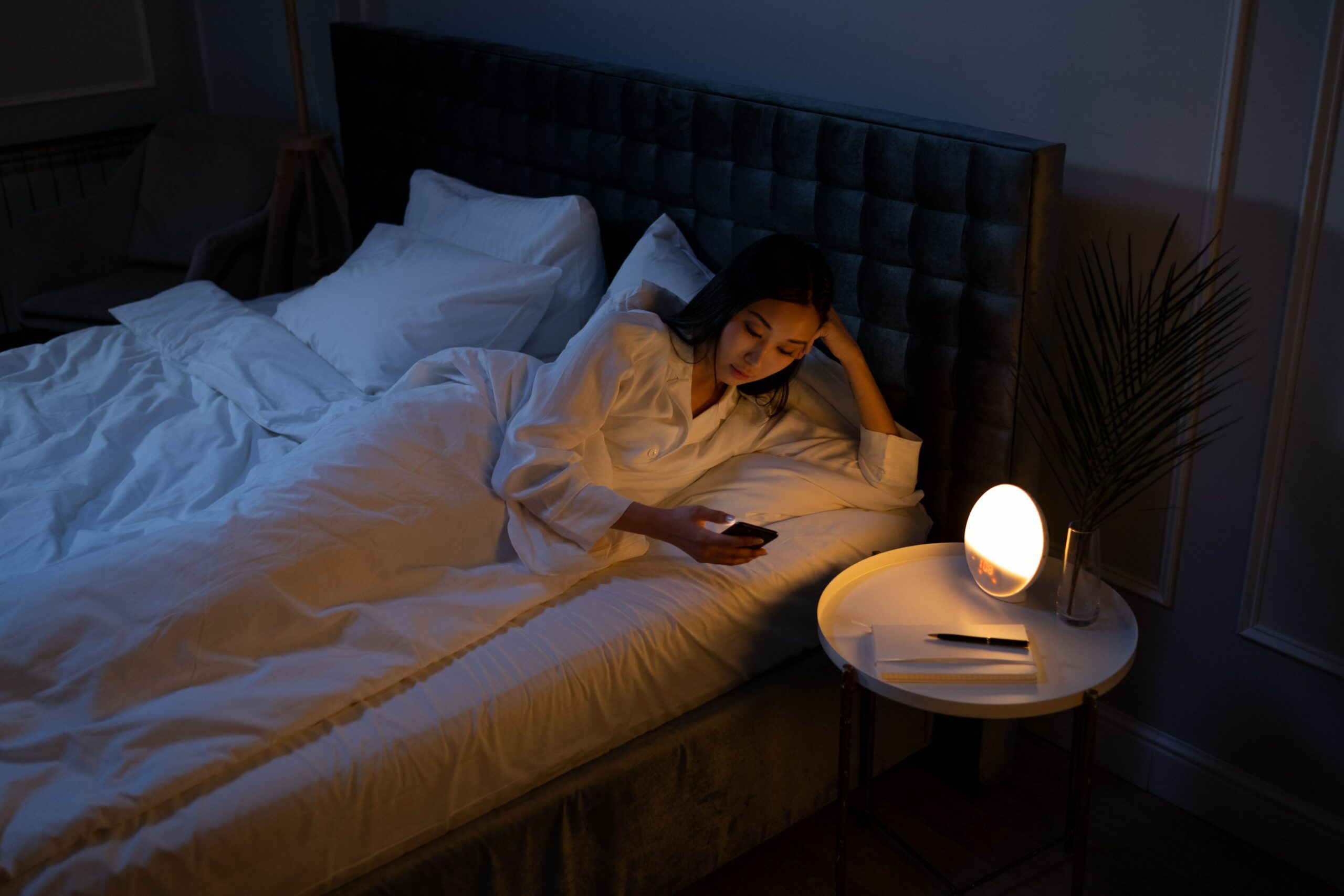Do you have a hard time sleeping at night? No matter how many times you toss and turn in your bed, you just can’t fall asleep. Instead, you’re wide awake, mind racing with fears and worries about the past, the present, and the future.
If you struggle with nighttime anxiety, falling asleep may seem like an impossible task.
But after long enough, this starts to affect you on a daily basis. You can’t concentrate on work. You forget so many things it’s incredible you function at all. That’s what sleep deprivation does, and it can be dangerous.
Next time you feel extremely anxious at night, try some of these tips. Maybe they’ll help you fall asleep.
Practice Basic Sleep Hygiene
Practicing basic sleep hygiene can be very helpful in signaling to your body that it is time to sleep. Using blackout curtains can help make sure light isn’t entering your bedroom. Making sure any electronics are unplugged so there are no lights shining or flickering in the bedroom can also be helpful. Using a sleep mask can also help block out any excess light.
Using a box fan or sound machine can help produce white noise to block out sound. After a period of using white noise, your brain will start to associate the sound of the white noise with sleep.
Setting the thermostat between 60 to 68 degrees Fahrenheit is recommended for the most comfortable sleep. These temperatures help facilitate REM sleep.
Have a Light Snack
Having a light snack before bed can help you sleep, though be careful to really keep it light. Heavy meals, after all, make it more difficult for you to sleep and can be difficult to digest. When selecting a snack, try to go for something that will balance your blood sugar. Balanced blood sugar leads to better quality rest.
If you want to drink something, soothing beverages like chamomile tea help. Just make sure to avoid drinks like coffee or alcohol, as those either keep you awake or lower the quality of your sleep.
Try Journaling
Writing down your worries can help you get them out of your head. So, if you’re feeling extremely worried about something, write it down somewhere only you will read it. You can try writing anything that comes to mind, too. Empty your mind of thoughts and worries, and that may help you fall asleep faster. Just try not to get too worked up while writing. The idea is to help you sleep, not give you even more anxious energy.
You can also try to write down a to-do list for the following day. Planning out their next day can lower some people’s nighttime anxiety. But do be careful. For some people, this has the opposite effect: it makes them even more anxious. So, it’s up to you to see whether this helps you or makes things worse for you.
Don’t Stay in Bed
Lie down, and try to sleep. If after twenty or thirty minutes, you’re still awake, and you don’t think you’ll fall asleep any time soon, then don’t stay in bed. You’ll want to keep the lights low and do something simple and calming.
Getting out of bed, getting your mind off your worries, and then lying back down after a while to try and sleep a second time can actually be more helpful than tossing and turning in vain. It gives your mind an opportunity to reset, and give sleep another real try later on, instead of frustrating you.
Stay Calm, but Occupied
There are plenty of things you can do in the evening that don’t require a lot of energy. The most calming options are meditation and relaxing yoga poses. These force you to change the way you breathe, to breathe deeper and slower, and this can help you fall asleep faster when it’s time to go to bed.
Alternatively, you can take a bath or drink some tea. If you’d rather do something that requires a little more attention, you can read a book or listen to a podcast. If you feel you need to move, then do something simple like fold and put away your laundry. As long as it’s something calm, something you don’t have to rush for, it’ll help you fall asleep faster in the end.
Consider Counseling
As helpful as these tips may be, none of them will fix the underlying cause of your insomnia: the anxiety that plagues your thoughts at night. What can help you address these issues is counseling. We can help you find the root of your issues and make nights less of a struggle for you.



